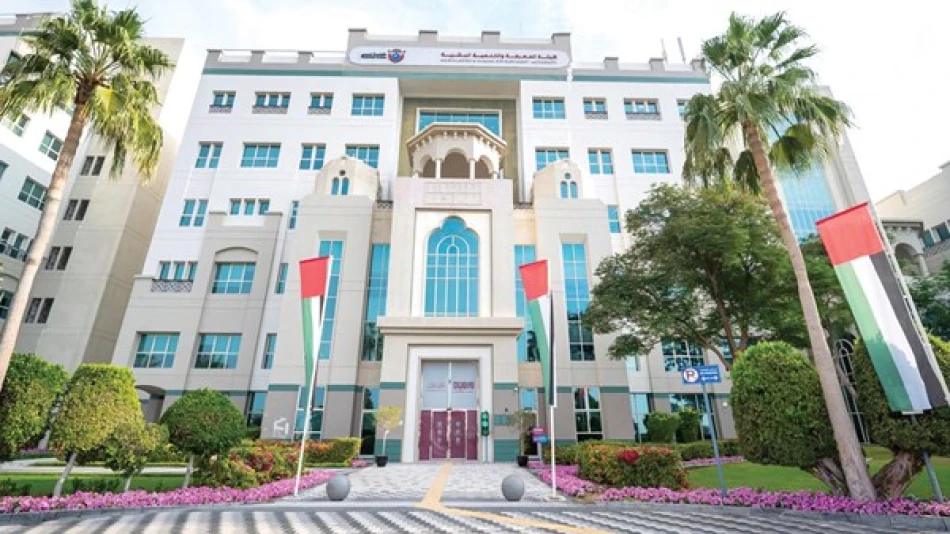
Evaluating the Early Childhood Arabic Education Initiative: A Two-Year Review
Dubai Mandates Arabic Language Education in Early Childhood: A Cultural Preservation Push in an International Hub
Dubai's Knowledge and Human Development Authority has implemented mandatory Arabic language requirements for early childhood education, marking a significant shift toward preserving national identity in one of the world's most internationally diverse cities. The policy, launching in phases starting this September, requires all private schools and early childhood centers to dedicate at least one-third of weekly activities to Arabic language instruction for children aged 4-6 years.
Phased Implementation Targets Youngest Learners
The rollout strategy demonstrates careful planning, beginning with Phase One covering children aged 4-6 years from September 2024. Educational institutions will undergo comprehensive evaluation after two years before the policy expands to younger age groups. Phase Two will target 3-4 year-olds, while Phase Three focuses on children from birth to age 3.
This systematic approach mirrors successful language preservation initiatives in countries like Singapore, where Mandarin education became mandatory in schools despite English dominance in business. The UAE's strategy appears designed to avoid the cultural dilution that many international business hubs experience as expatriate populations grow.
Strict Standards for Teachers and Curriculum
Teacher Qualification Requirements
The policy establishes rigorous standards that reflect Dubai's commitment to quality implementation. All Arabic language teachers must register in the Authority's electronic system and document their weekly teaching schedules for review. Each teacher cannot be responsible for more than 75 children, ensuring adequate attention and instruction quality.
Educational institutions receive a three-year transition period to ensure all current and new teaching staff meet required qualifications. Teachers must complete at least 20 hours of annual professional development focusing on language acquisition methods and early childhood education techniques, including play-based and inquiry-based learning.
Curriculum and Time Allocation
The policy mandates 200-300 minutes weekly of organized, teacher-led activities in Arabic, integrated throughout daily routines including playtime, meals, and classroom activities. This immersive approach contrasts with traditional language education models that isolate language learning into specific class periods.
Schools must provide concrete evidence of approved Arabic language curricula that align with national guidelines and policies, along with detailed assessment data tracking children's progress in periodic reports.
Strategic Implications for Dubai's Educational Landscape
Balancing International Appeal with National Identity
This mandate represents Dubai's attempt to solve a complex challenge: maintaining its appeal as an international business and education hub while preserving Emirati cultural identity. The city hosts over 200 nationalities, with expatriates comprising roughly 85% of the population, creating pressure on local language and culture preservation.
The policy could influence school selection decisions for expatriate families, potentially creating competitive advantages for institutions that excel in bilingual education. International schools may need to restructure curricula and hiring practices, possibly increasing operational costs that could be passed to families.
Regional Leadership in Cultural Preservation
Dubai's approach positions the emirate as a regional leader in balancing globalization with cultural preservation. Unlike Qatar's more restrictive approach to international education or Saudi Arabia's recent rapid liberalization, Dubai seeks a middle path that maintains international competitiveness while strengthening national identity.
The policy aligns with broader UAE initiatives to promote Arabic language use in government and business sectors, suggesting a coordinated national strategy rather than isolated educational reform.
Long-term Impact on Dubai's Global Positioning
This mandatory Arabic education policy signals Dubai's maturation from a purely business-focused international hub to a more culturally rooted global city. The emphasis on early childhood education recognizes that language acquisition is most effective during critical developmental years, potentially creating a generation of truly bilingual residents rather than English-dominant expatriates with minimal Arabic skills.
Success will likely depend on implementation quality and teacher training effectiveness. If executed well, the policy could become a model for other international cities seeking to preserve local culture while maintaining global appeal. However, poor implementation could create educational disparities or reduce Dubai's attractiveness to international families, making the next two years crucial for the policy's long-term viability.
Most Viewed News

 Layla Al Mansoori
Layla Al Mansoori






